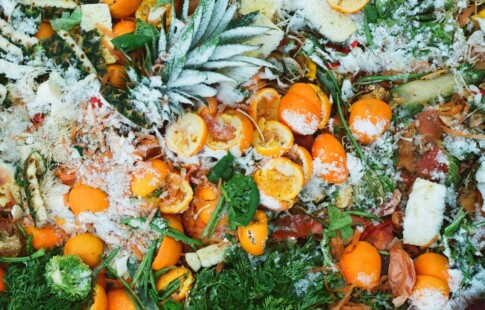
A Guide to Hobby Farming
We are reader-supported. When you buy through links on our site, we may earn affiliate commission.
Hobby farming is gaining popularity as individuals seek gardening joy and small-scale farming rewards.
What is Hobby Farming?
Hobby farming refers to a small-scale agricultural or gardening pursuit that individuals undertake for pleasure and personal satisfaction rather than as a primary source of income. Hobby farmers typically cultivate various crops, raise small numbers of livestock or engage in other agricultural activities on a smaller scale.
The emphasis is often on sustainable and enjoyable practices, allowing individuals to connect with nature, produce their food and experience the rewards of hands-on cultivation without the commercial pressures associated with larger-scale farming.
Benefits of Hobby Farming
Hobby farming offers a range of benefits, combining the joys of gardening with the satisfaction of small-scale agriculture. Here are the key advantages:
- Connection to nature: It provides individuals with a hands-on connection to the natural world, fostering a deeper appreciation for the environment and its cycles.
- Fresh, homegrown produce: Growing fruits, vegetables and herbs ensures a fresh and organic produce supply, contributing to a healthier lifestyle.
- Sustainability: Many hobby farmers embrace sustainable practices such as composting, organic farming and water conservation—promoting environmental responsibility.
- Stress relief: Engaging in gardening activities has been linked to reduced stress and improved mental well-being. The act of nurturing plants and animals can be therapeutic.
- Education opportunities: It serves as an educational platform, allowing individuals to learn about agriculture, biology and the complexities of ecosystems practically.
Hobby Farming and Homesteading
Hobby farming and homesteading share similarities but differ in scale, goals and level of self-sufficiency:
Scale
Hobby farming is typically smaller in scale and is often pursued part-time alongside other occupations or activities. The focus is on enjoyment, learning and personal satisfaction rather than providing all necessary resources for the household.
Homesteading involves a more substantial commitment to self-sufficiency. Homesteads are often larger and designed to provide a significant portion, if not all, of the family’s necessities.
Goals
The primary goals of hobby farming are recreational and personal. Individuals may cultivate various crops, raise a few animals or engage in gardening practices for the pleasure of the activity and its benefits.
On the other hand, the primary goal of homesteading is to create a self-sufficient lifestyle, producing a substantial amount of the food, energy and resources needed for daily life. It often involves a more holistic and intentional approach to sustainable living.
Self-Sufficiency
While hobby farmers may enjoy producing some of their own food, they often supplement their needs with store-bought items. The emphasis is on the experience rather than achieving complete self-sufficiency.
Homesteaders aim for a higher degree of self-sufficiency. They may produce their own meat, dairy and vegetables and even generate their own energy, reducing dependence on external sources.
Commercial Aspects
Commercial interests do not typically drive hobby farming. Any surplus produce or products are often shared with friends, family or local communities rather than being sold on a large scale.
Homesteaders may engage in small-scale commercial activities, such as selling surplus produce or handmade products. However, the commercial aspect is secondary to meeting the family’s needs.
Starting a Hobby Farm
To start hobby farming, individuals can follow these steps:
- Define goals: Clearly outline objectives for the hobby farm, considering preferences and available resources.
- Choose location: find a suitable piece of land, ensuring it receives adequate sunlight and has water access.
- Research and education: Lean about gardening, crop cultivation and animal care through online resources, books and local workshops.
- Start small: Begin with a manageable scale to gain experience and gradually expand the hobby farm.
- Connect with the community: Join local or online hobby farming communities to gain insights and support from experienced farmers.
- Plan layout: Design the layout considering spacing, placement of crops and aesthetics.
- Acquire tools: Purchase essential gardening tools and equipment for animals.
- Select crops and livestock: Choose varieties aligned with goals and local climate, starting with easy-to-grow options for beginners.
- Prepare soil: Add organic matter or compost to test and improve soil fertility.
- Implement sustainability: Emcrase practices like composting, organic fertilizers and crop rotation.
- Build fences and shelters: Install fencing for crop protection and provide shelters for animals.
- Maintain regular care: Establish a routine for watering, weeding and pest control to ensure the health of the hobby farm.
Hobby Farm Checklist
Starting a hobby farm involves several vital considerations and primary resources. Here’s a checklist:
- Land: Acquiring suitable land is essential for starting a hobby farm. The size will depend on the individual’s goals, available space and compliance with local regulations.
- Water access: Ensuring that the chosen land has reliable access to water for irrigation and the needs of any animals being kept is crucial for the prospective hobby farmer.
- Tools and equipment: Acquiring essential gardening tools such as shovels, rakes, hoes, pruners and wheelbarrows is necessary. Obtaining equipment like feeding through, watering systems and appropriate animal care tools is recommended for livestock.
- Seeds and plants: The hobby farmer should decide on the crops to grow and source quality seeds or seedlings, considering climate and soil conditions.
- Livestock: If animals are part of the plan, the individual should research and choose breeds that suit their space and goals. Common choices for hobby farms include chickens, ducks, rabbits or goats.
- Fencing: Installing fencing is essential to protect crops from wildlife and create designated animal areas. Proper fencing is crucial for plants’ and animals’ safety and well-being.
- Shelter: Providing appropriate shelter for animals is essential. This can range from a simple chicken coop to a small barn for larger livestock.
- Budget: Creating a budget for the hobby farm, considering initial expenses for tools, seeds, animals and infrastructure, is crucial. Factoring in ongoing costs for maintenance and supplies is also essential.
Making Money
To generate income from a hobby farm, individuals can:
- Sell at markets: Offer homegrown produce at farmers’ markets, establishing a direct connection with customers.
- Rent out space: Generate income by renting out the farm for events such as weddings or workshops.
- On-site store or stand: Set up a farm or on-site store to sell fresh produce and value-added products.
- CSA program: Start a Community Supported Agriculture (CSA) program for a consistent customer base.
- U-pick operations: Allow customers to pick their own produce for a unique experience and additional income.
- Egg or meat sales: Sell eggs, meat or other animal products from chickens or livestock.
- Farm experiences: Offer educational tours, workshops or farm-to-table events for visitors.
- Workshops or classes: Share through paid seminars or farming, gardening or sustainability classes.
Balancing Work and Pleasure
While hobby farming requires commitment, balancing work and pleasure is essential. Enjoy the process, savor quiet moments in the garden and appreciate the connection to the land.
This balance is key to sustaining enthusiasm over the long term. Hobby farming is a fulfilling venture that allows individuals to connect with nature, promote sustainability and enjoy the fruits of their labor.
Share on
Like what you read? Join other Environment.co readers!
Get the latest updates on our planet by subscribing to the Environment.co newsletter!
About the author

Jane Marsh
Starting from an early age, Jane Marsh loved all animals and became a budding environmentalist. Now, Jane works as the Editor-in-Chief of Environment.co where she covers topics related to climate policy, renewable energy, the food industry, and more.





